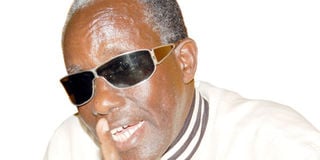We’re back to the dark days, says Tumwine

Gen. Elly Tumwine. Photo by Stephen Otage
What you need to know:
The general says rampant corruption with impunity may render the exploits of the 1981-85 bush war futile. The World Bank says Uganda loses at least Shs500 billion to corruption annually.
Former army commander and senior member of the UPDF high command, General Elly Tumwine has said corruption with impunity is returning Uganda to the ‘dark’ days of the past and admitted that unless something is done, graft may render the exploits of the 1981-85 bush war futile.
In an interview with Sunday Monitor on wide-ranging issues, Gen. Tumwine, an army representative in Parliament, said corruption today is threatening to plunge the country into a crisis, admitting that fighting the vice “is an obligation we must do or we perish”.
“When we went to the bush, while there was general insecurity as the main problem, there was also corruption with impunity. That is why we made it point number seven in the 10-point programme,” he said. “I am fighting because our struggle would have been for nothing. People don’t die, others get maimed and then you come and people fill their stomachs and then they cause the same problems you were fighting against.”
His comments could lend credence to suggestions by FDC leader Kizza Besigye, himself a bush war hero, that corruption and a breakdown of accountable government have rendered the current political environment ripe for a similar rebellion.
Gen. Tumwine, however, was quick to dismiss the suggestion and accused Dr Besigye of crusading against graft on partisan grounds “from a small view of his party wanting to get those in power out.”
“The corruption in the villages doesn’t know parties; the corruption in institutions doesn’t know only government,” he said. “There is corruption in NGOs, in churches… I am not impressed by any individual who wants to bring the corruption issue on partisan grounds.”
Gen. Tumwine argued that the advent of multiparty politics after two decades in abeyance following a 2005 referendum presented more room for corruption to thrive, leaving the country deeply polarised.
“I am now convinced more than ever before that it was a mistake to go multiparty,” he said. “Instead of somebody saying a thief is a thief, he wants to make him NRM. A thief is a thief, whether NRM, FDC or DP.”
Offering his two cents, DP president Norbert Mao argued that Uganda does not have a functional multiparty democracy and said in the absence of “real pluralism” - where political actors have the freedom to contest for power equally, “under the current system, the NRM faces no risk of losing power.”
“The lifting of presidential term limits [in 2005] has actually fuelled corruption. When regime survival is the penultimate goal, it means there is soft peddling by government and the President. In fact, most people who steal money claim they are doing it to support the NRM,” he said.
Gen. Tumwine was one of the most vocal MPs pushing for the resignation of Prime Minister Amama Mbabazi and Internal Affairs Minister Hilary Onek at the height of the oil bribery allegations.
In the interview, he also speaks about his personal relationship with Mr Mbabazi, rekindles bush war memories and refutes claims that he has been placed on katebe (undeployed).



